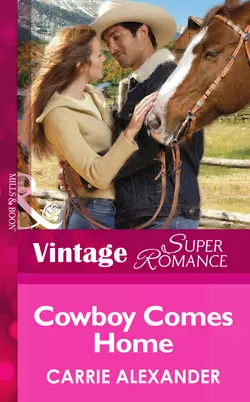Cowboy Comes Home

Carrie Alexander
Тип: электронная книга
Жанр: Современные любовные романы
Язык: на английском языке
Стоимость: 458.46 ₽
Статус: В продаже
Издательство: HarperCollins
Дата публикации: 16.04.2024
Отзывы: Пока нет Добавить отзыв
О книге: When you owe a man everything, how do you make amends? Meg Lennox isn′t sure, but she better figure it out quick now that both she and Rio Carefoot are back in Wyoming. Hard to say that hiring him on her family′s ranch will fix abandoning her first love years ago. Especially when her departure kicked off a chain of events that changed Rio′s life…permanently.But the job is a start. Working together she learns that the best parts of him are still there. How can she not be tempted? So maybe this is their chance to get close enough to try again. Or maybe she′s kidding herself.